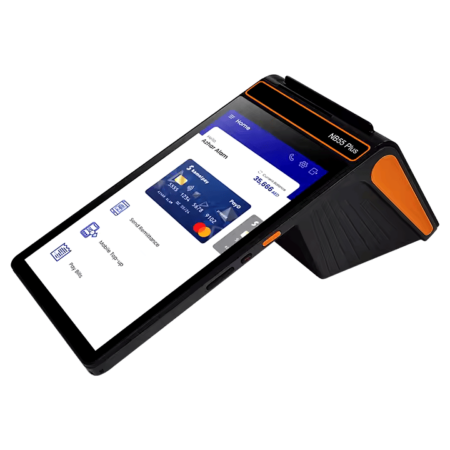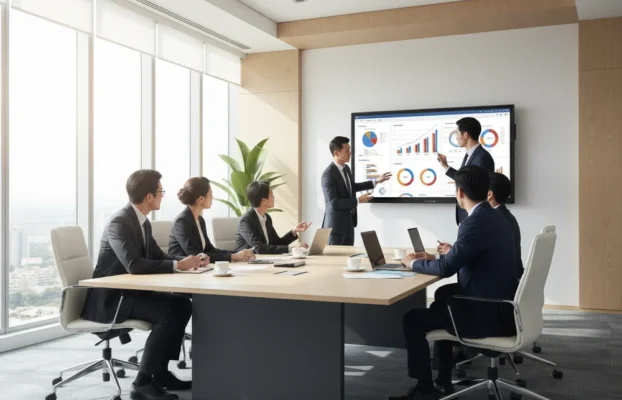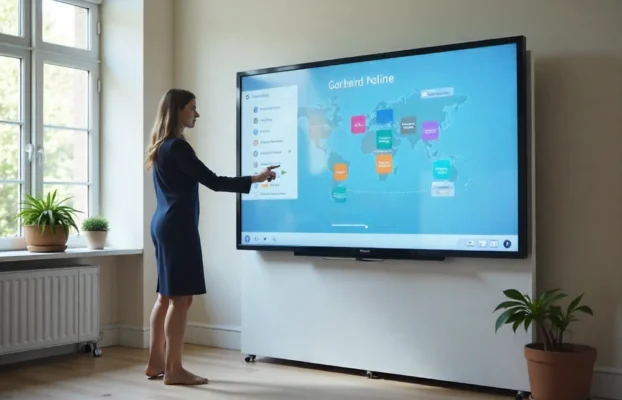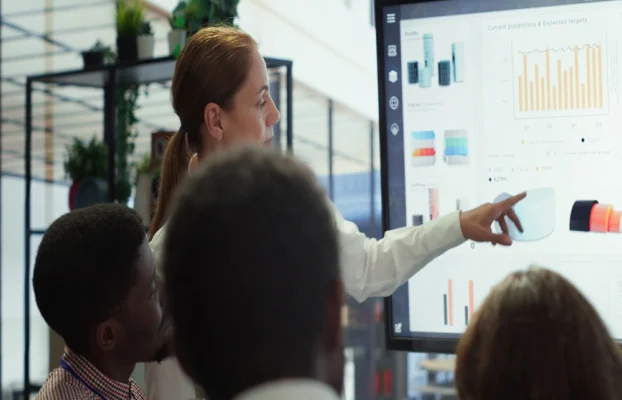In today’s competitive retail and F&B industries, a POS terminal is more than just a tool to complete sales—it’s the nerve center of your business operations. Whether you’re running a café, boutique, mini market, or food truck, a reliable and efficient point-of-sale system can greatly enhance your customer service, track inventory, generate reports, and improve overall efficiency.
Let’s explore everything you need to know about POS terminals, why they matter, and how to choose the right one—especially if you’re considering Arvia’s high-performing all-in-one Android POS system.
What Is a POS Terminal?

A POS terminal, or point-of-sale terminal, is the hardware and software combination used to complete retail transactions. It replaces the traditional cash register with a smarter, faster, and more accurate system. Most modern POS terminals include:
-
A touchscreen display
-
Integrated receipt printer
-
Barcode scanner
-
NFC/contactless card reader
-
POS software for transaction processing
These systems are widely used in restaurants, retail shops, convenience stores, and even service-based businesses.
Why Businesses Need a Smart POS Terminal
Here are several reasons why businesses are rapidly shifting to digital POS systems:
-
Faster Checkout – Reduce waiting time with one-tap payments and real-time inventory updates.
-
Inventory Control – Automatically track stock levels, low stock alerts, and restocking needs.
-
Sales Analytics – Generate daily, weekly, and monthly reports to analyze trends and performance.
-
Improved Accuracy – Minimize human error through barcode scanning and pre-programmed pricing.
-
Customer Experience – Accept various payment methods including credit/debit cards, QR code payments, and e-wallets.
Types of POS Terminals
POS terminals come in different forms depending on your business size and model:
-
All-in-One POS Terminals: Ideal for small-to-medium businesses that need a compact, easy-to-set-up system.
-
Mobile POS Systems: Used by food trucks and events, usually via tablets or smartphones.
-
Self-Service Kiosks: Allow customers to place their own orders, commonly used in fast food chains and cinemas.
-
Cloud-Based POS Systems: Offers remote access to data, great for businesses with multiple branches.
Key Features to Look For in a POS Terminal
When selecting the best POS terminal for your business, consider the following:
-
User-Friendly Interface – A clear touchscreen and intuitive layout is crucial.
-
Connectivity Options – WiFi, LAN, and Bluetooth capabilities for flexibility.
-
Thermal Printer Built-In – Saves space and reduces equipment costs.
-
Durability – Especially in busy environments like restaurants or outdoor setups.
-
Multi-Payment Support – Accept credit cards, e-wallets, QR Pay, and even split payments.
Arvia All-in-One POS Terminal: Compact Yet Powerful

One standout option in the Malaysian market is the Arvia All-in-One Android POS Terminal. Specifically designed for SMEs and local businesses, this unit features:
-
✅ 8-inch touchscreen with responsive and clear display
-
✅ Built-in 58mm thermal receipt printer
-
✅ Multiple ports for USB, LAN, and cash drawer
-
✅ Pre-installed POS software ready for plug-and-play
-
✅ Supports QR code payments and card transactions (via external NFC readers)
-
✅ Compact design perfect for counters, pop-up booths, and kiosks
This makes Arvia’s solution a smart POS terminal choice that offers exceptional value with all the essential features packed into one compact system. Plus, it’s backed by a trusted local brand with customer support and warranty.
POS Terminal vs. Traditional Cash Register
While traditional registers only manage basic cash transactions, our POS device integrate payment processing, inventory management, and sales analytics into one powerful solution. A digital POS terminal can future-proof your business and keep up with customer expectations.
Who Should Use a POS Terminal?
POS terminals are suitable for:
-
Retailers (fashion, grocery, electronics)
-
Restaurants & Cafés
-
Convenience Stores
-
Pharmacies
-
Clinics & Salons
-
Pop-up shops & mobile vendors
Even service providers such as tuition centers and small agencies can benefit from payment tracking and invoicing functions included in most POS software.
Tips to Maximize Your POS Terminal Investment
-
Train your staff – Ensure they understand how to use the system efficiently.
-
Regular updates – Keep your software updated for new features and security patches.
-
Track reports – Use daily sales reports to optimize staffing and inventory.
-
Integrate with accounting – Many POS systems can sync with software like QuickBooks or Xero.
-
Choose the right vendor – Local support and warranty (like from Arvia) make a huge difference.
Conclusion
Investing in the right POS terminal is a strategic move that can streamline your business operations and improve your bottom line. Whether you’re a small retail shop or a fast-paced café, a smart POS device like Arvia’s can provide the speed, efficiency, and flexibility your business needs to thrive in the digital age.






